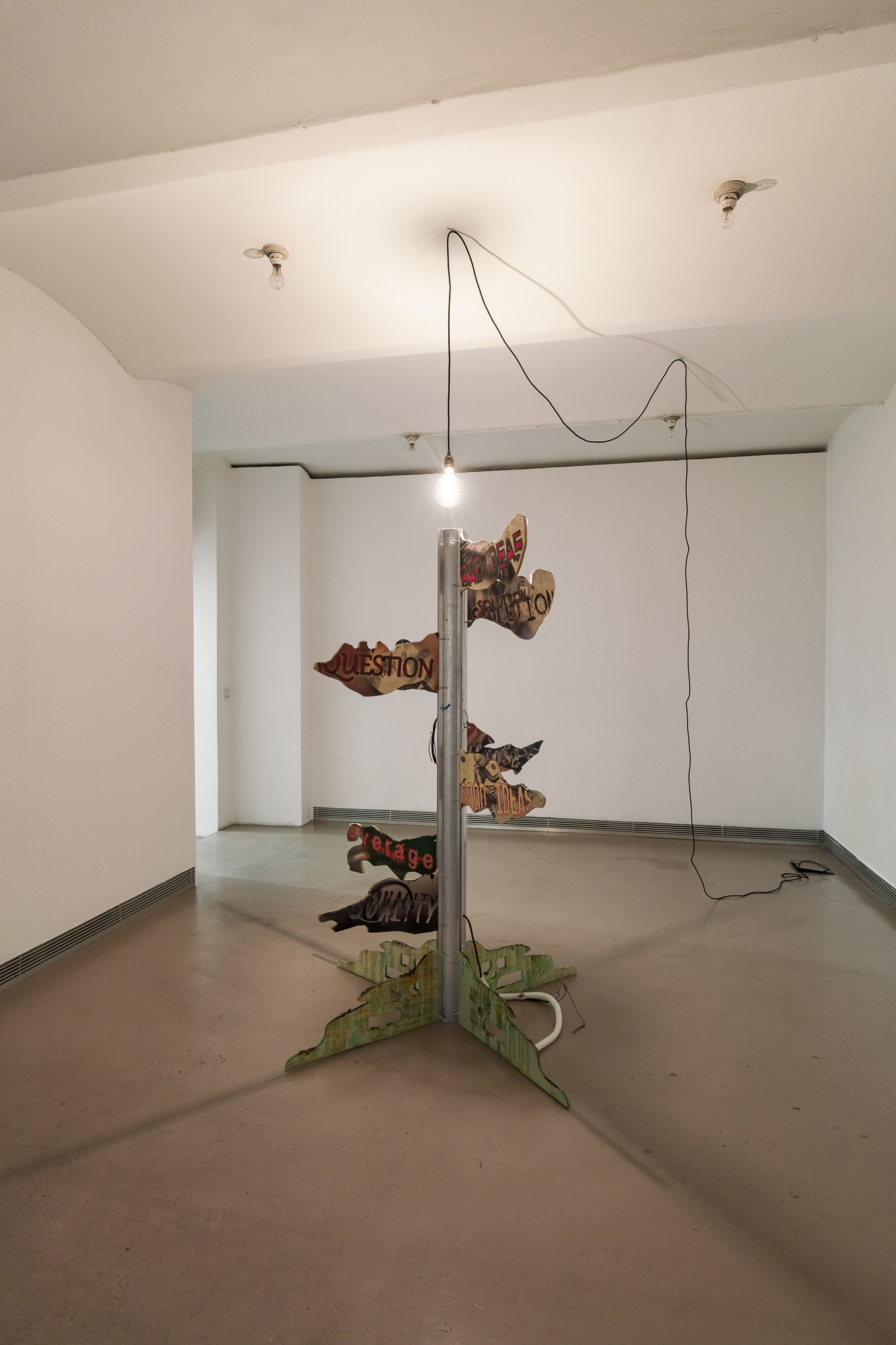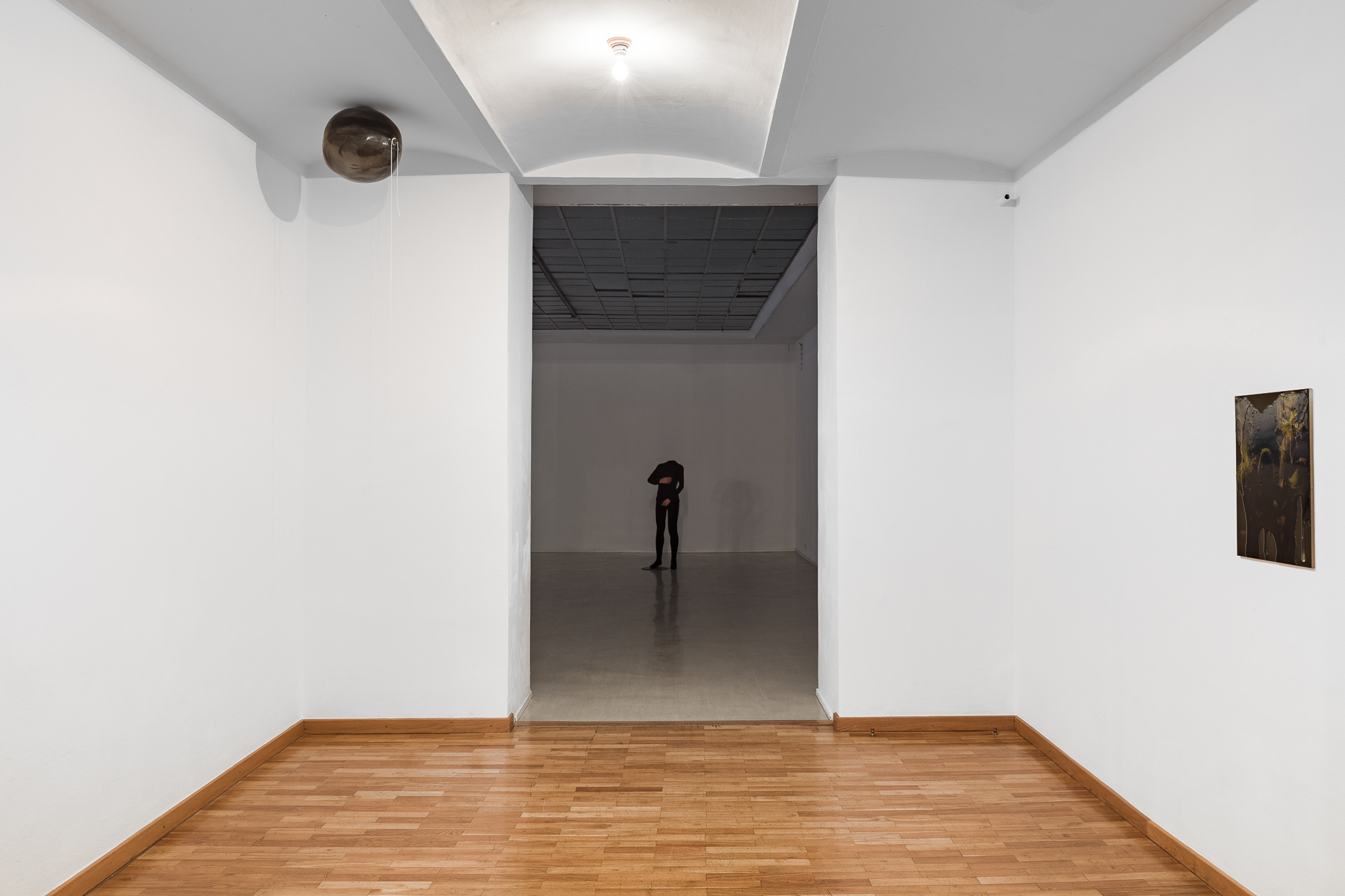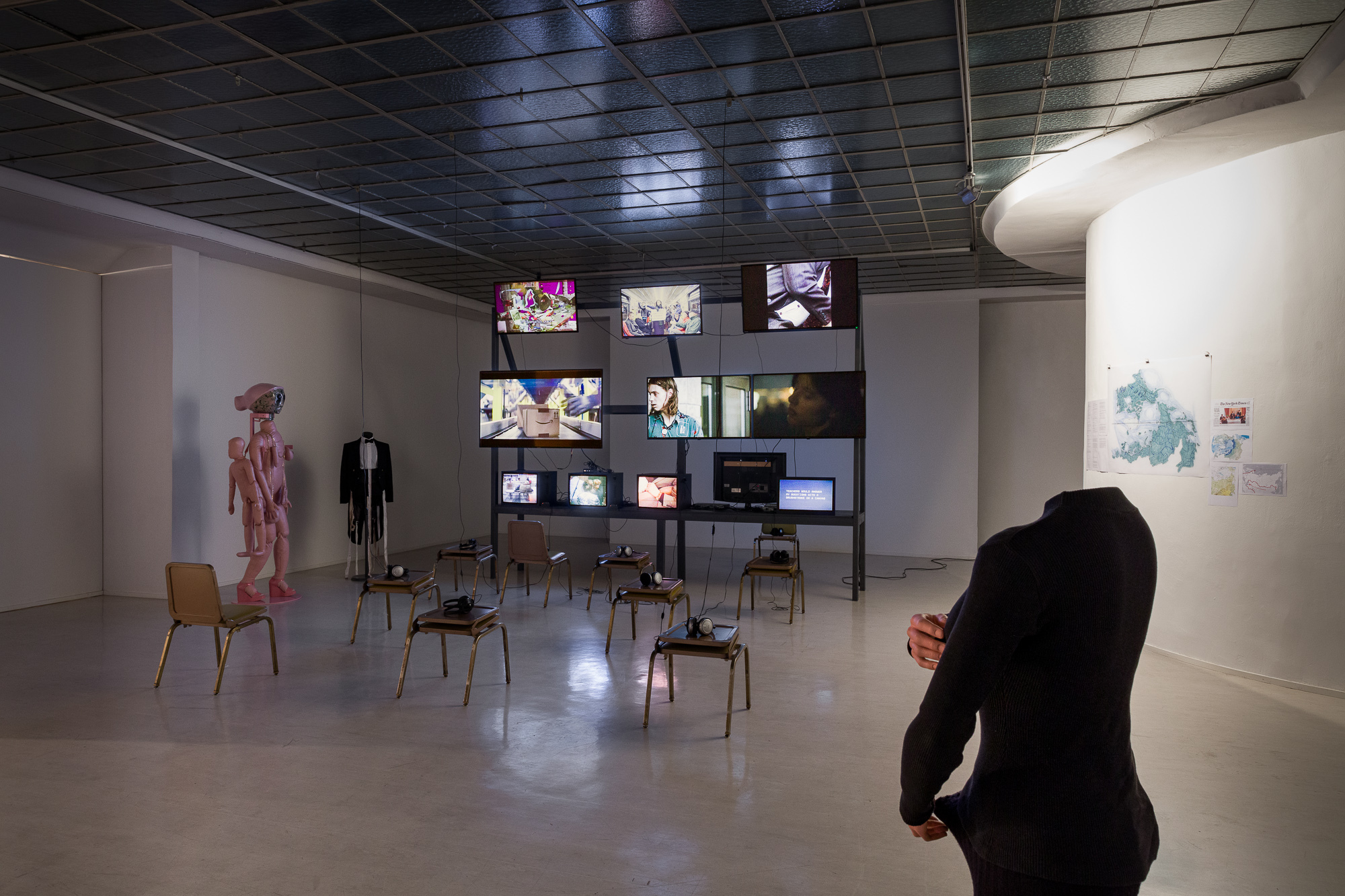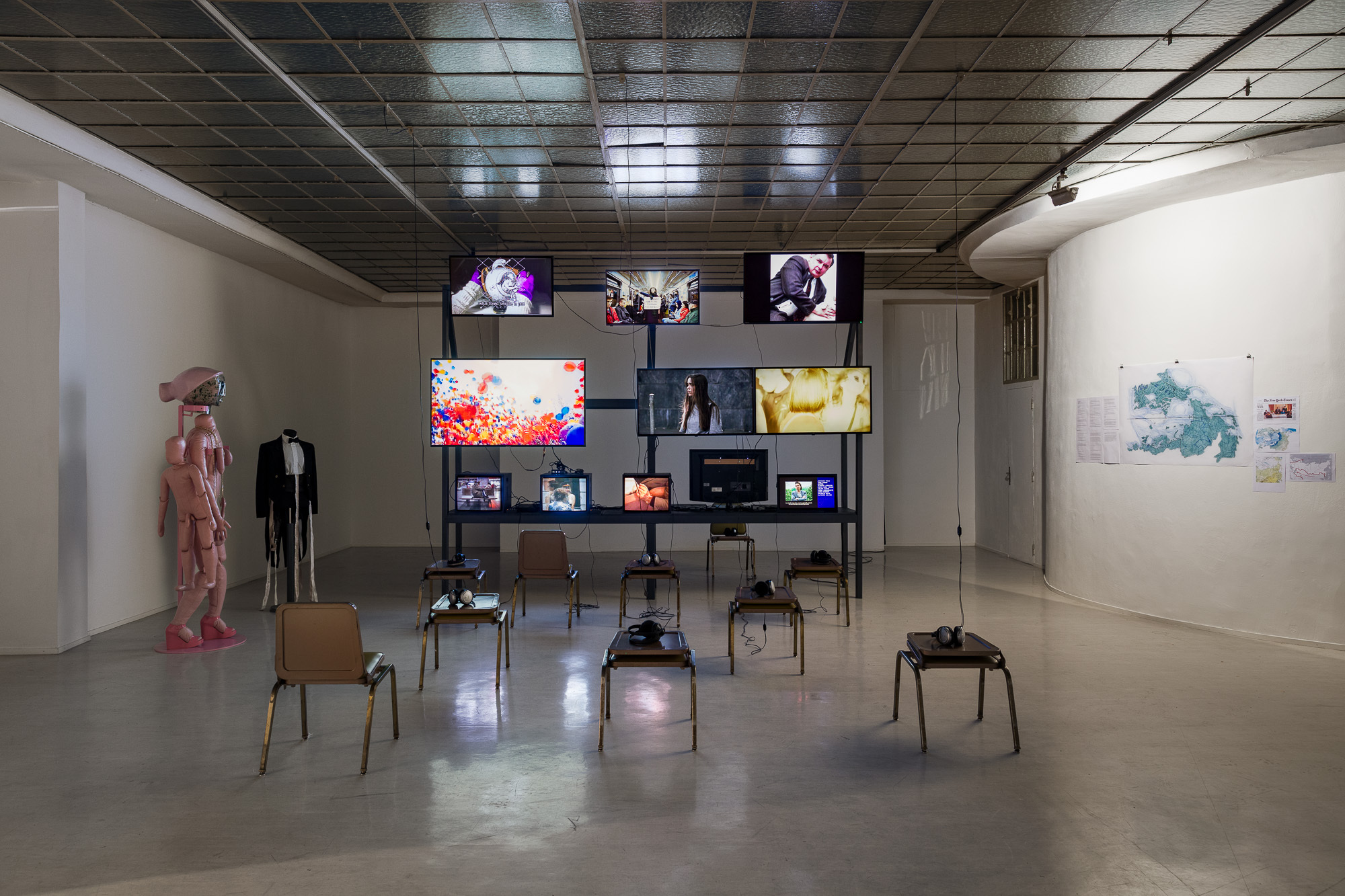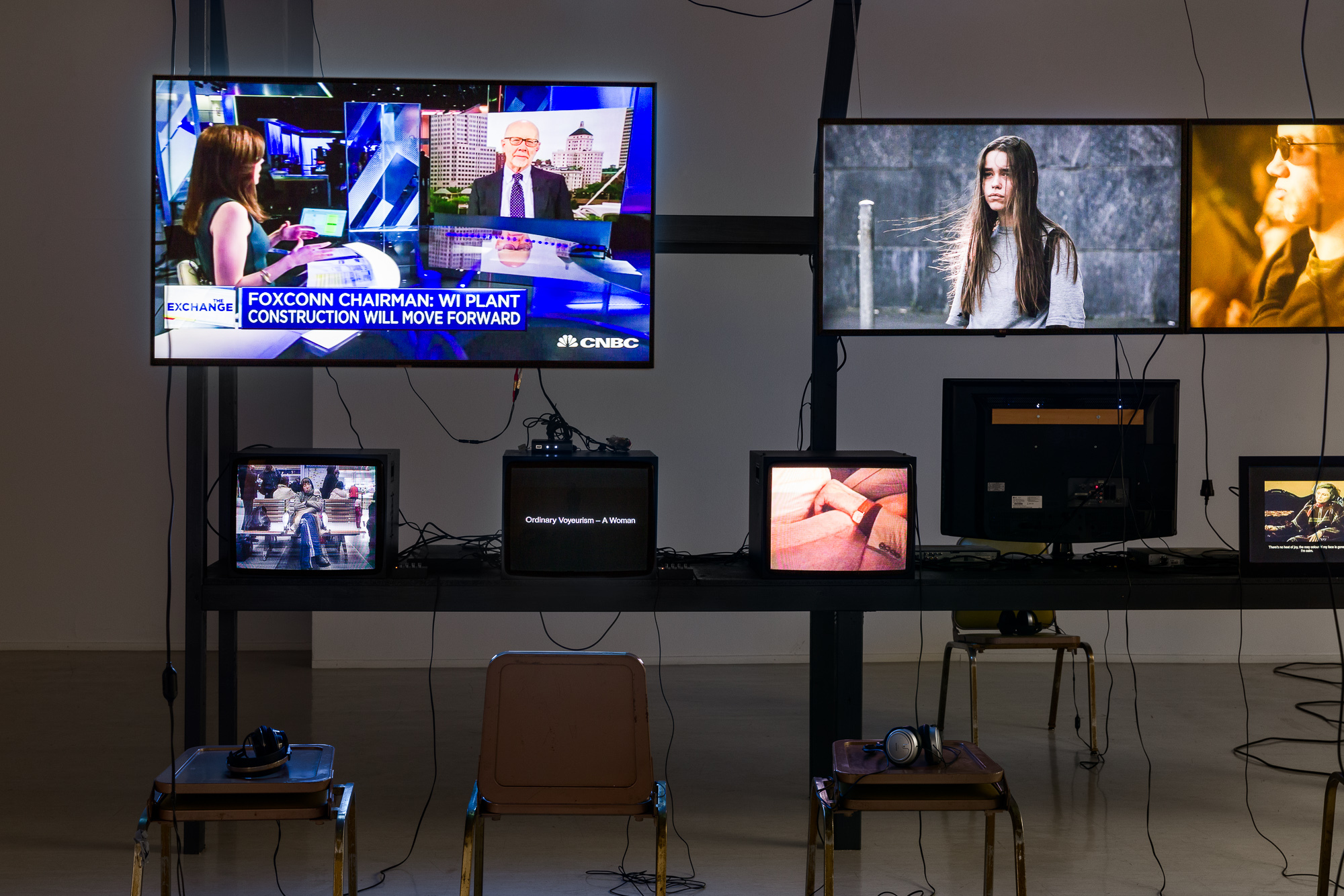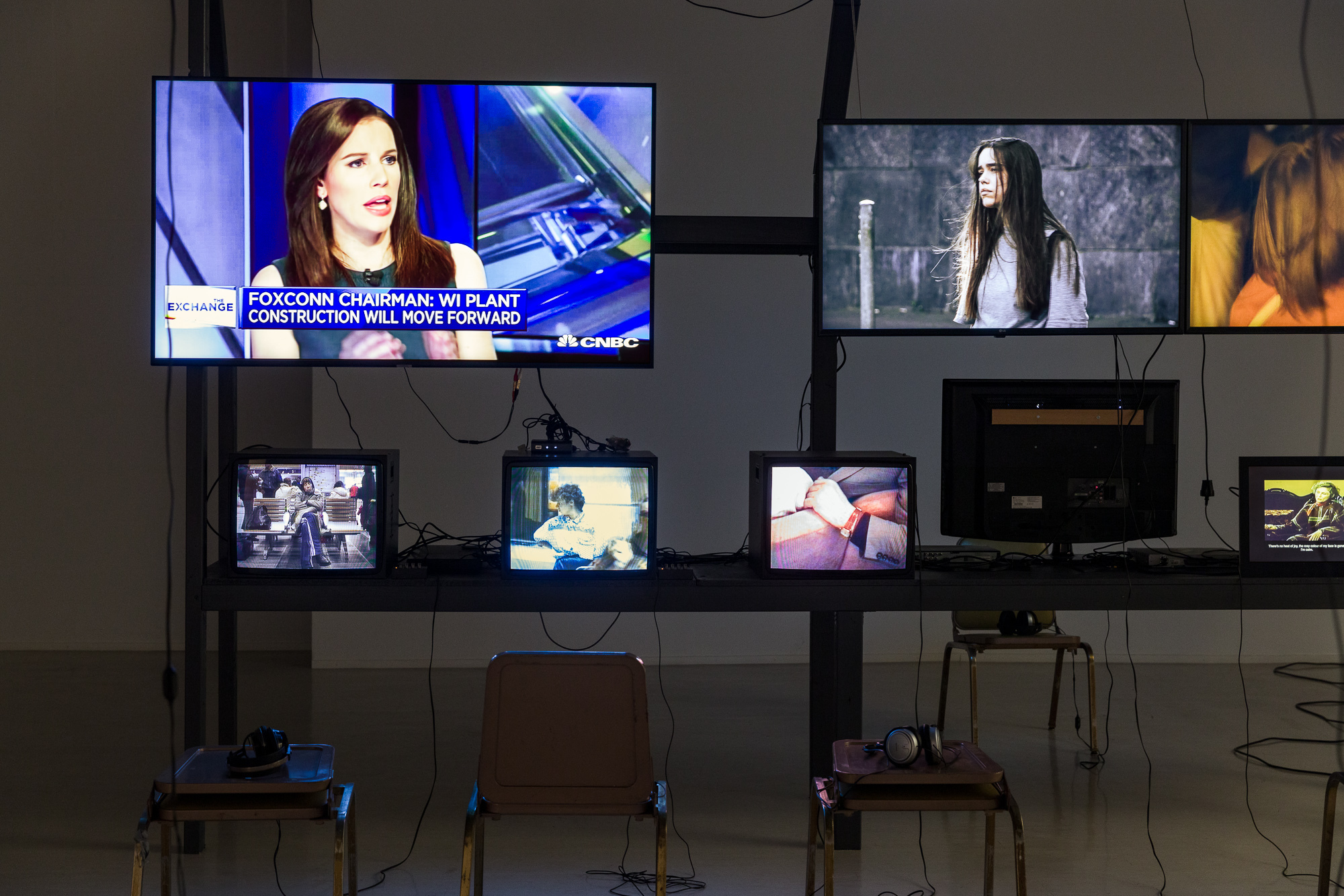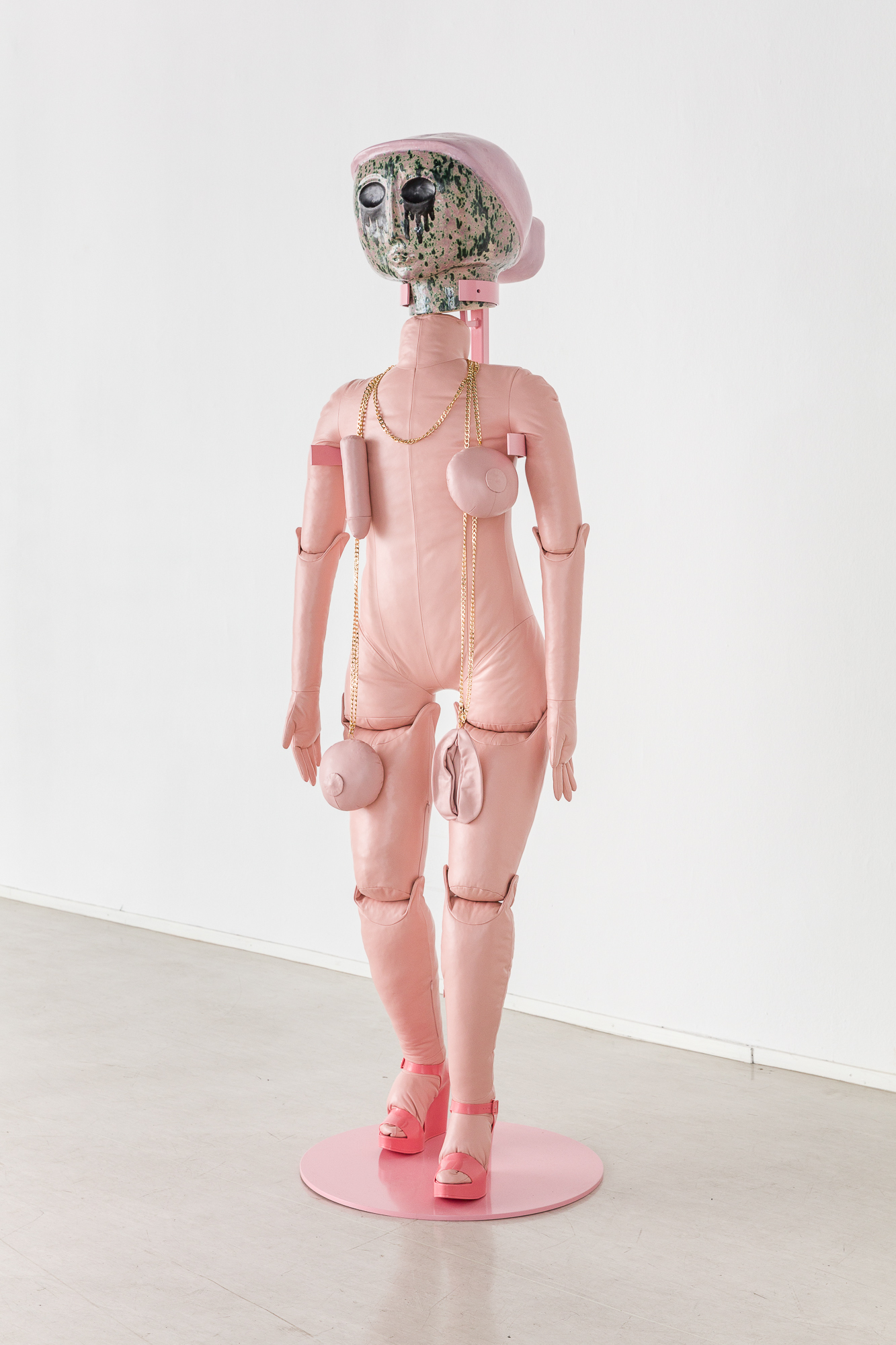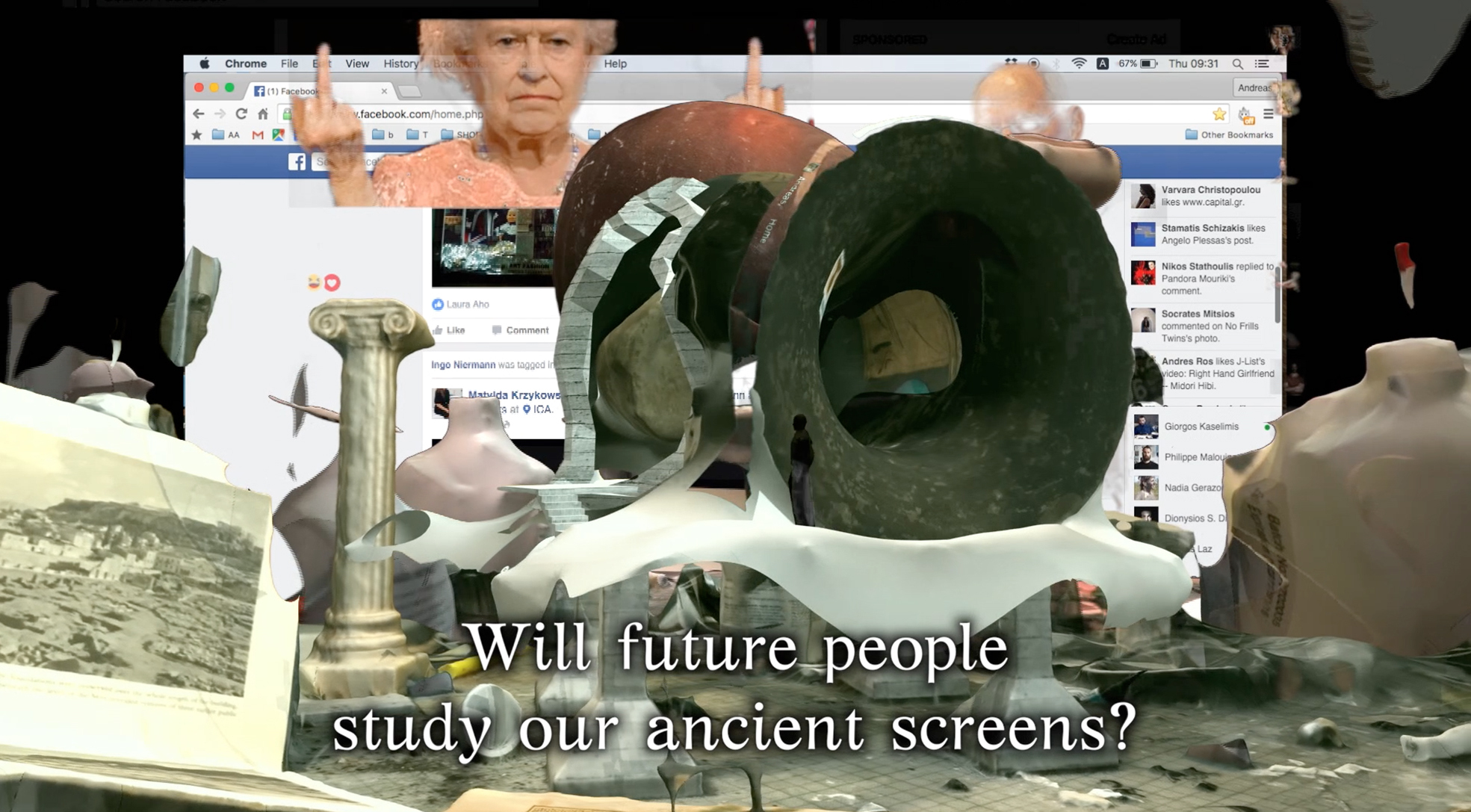—
curated by Valentinas Klimašauskas
An Incomplete & Unreliable Guide to Social Media War Room
Andreas Angelidakis, Jakub Choma, Olivia Coeln, Anna Daučíková, Anna Jermolaewa, Jakob Lena Knebl, Yarema Malashchuk & Roman Himey, Ulyana Nevzorova, Ocean Earth, Goda Palekaitė, Jaakko Pallasvuo, Agnieszka Polska, Artūras Raila, Daniil Revkovsky & Andriy Rachinsky, Paul de Reus, Nina Sarnelle, Nedko Solakov
Eröffnung:
Samstag, 4. September 12.00 - 18.00 Uhr
Sonntag, 5. September 12.00 - 18.00 Uhr
An Incomplete & Unreliable Guide to Social Media War Room
Let’s be clear. This guide is incomplete and unreliable, the data conflicting or missing, the war hybrid and ongoing. The room is a riddle in a labyrinth. Social media a synonym for something else. We are still trying to understand what else, exactly. “The moment has come when all the crises – economic, ecological, migration, informational and political – are intertwined, and nobody can entirely figure out where they originated and how to address them but many declare to have ‘the solution’,– concludes Marta Barandiy in her policy paper about the Russian information war against the West. However, this statement also accurately reflects the nature of the ongoing information wars. Thus, here we are, surfing between various waves of pandemics and various ecopolitical crises, trying to control, monitor and understand – not necessarily in this order – ourselves and the ever-changing world.
What is the Social Media War Room?
Social Media War Room (SMWR) may be described as a particular area that is specially designed to extract insights by visually monitoring certain real-time actions. Thus, it consists largely of multiple screens displaying data from an arsenal of sources. Accordingly, the exhibition is built around diverse works that are connected to monitoring (semi)public acts, mining reality, researching social networks in Ancient Greece, behavioral surplus, data exhaust, political demonstrations, leaked material, media spectacles, various online collections, public voyeurism, amongst others. SMWR may be compared to the News Room or War Room – they all are rooms for monitoring and controlling the ongoing situation.
Where were we?
As already mentioned, the data is big and complex, it is constantly changing, incomplete, unreliable and we don’t know which part is which. The paradox of the so-called information age is that whilst new technologies have provided us with the ability to store, retrieve, manipulate and communicate more data, faster than ever before, it has simultaneously become more and more difficult to follow or monitor that information. Then add to this equation: (self)censorship, disinformation, red herring and false flag campaigns, under-representation, troll factories or groups that distrust established scientific facts and theories - flat earthers, climate change deniers, anti-vaxxers, conspiracy theorists. You can continue the list.
Hybrid wars?
Now is the right time to introduce Vladislav Surkov, the author of concepts like “non-linear war” or “sovereign democracy”. He is also a former aide to Vladimir Putin, a “political technologist”, “grey cardinal” or “puppet master”. It is he who published a short story “Without Sky” under a pseudonym and at the same time “curated” the invasion of Ukraine in 2014.
In “Without Sky”, he writes:
“In the primitive wars of the 19th and 20th centuries it was common for just two sides to fight. Two countries. Two groups of allies. Now four coalitions collided. Not two against two, or three against one. No. All against all…The goals of those in conflict were quite varied. Each had his own, so to speak: the seizing of disputed pieces of territory; the forced establishment of a new religion; higher ratings or rates; the testing of new military rays and airships; the final ban on separating people into male and female, since sexual differentiation undermines the unity of the nation; and so forth.”
In this context, it is easy to see why today’s cultural wars about everything from Covid-19, ecology and economy to the family, sexuality and gender may be interpreted as a direct result of non-linear information wars.
And the so-called social media?
In her book “The Age of Surveillance Capitalism” (2019), Shoshana Zuboff offers a disturbing picture of how Big Data firms are mining users’ information to predict and shape their behaviour. According to her, “surveillance capitalists now develop “economies of action,” as they learn to tune, herd and condition our behaviour with subtle and subliminal cues, rewards and punishments that shunt us toward their most profitable outcomes.”
Zuboff further explains how surveillance capitalism, through the modification of our behaviour, corrupts democracy, the power of the polis. The future taken, a horizon no more! In this situation, the future and human agency are ripped from us, as this kind of capitalism does not just predict, but also shapes. According to Zuboff, the idea that in this new kind of capitalism we became products is not just cliché, but it is also false. For Zuboff, we are not products – we are abandoned exploited carcasses. The product is the surplus which is being ripped from our lives.
So we are paranoid abandoned exploited carcasses, left in our narcissistic rooms with infinity mirrors?
Many seemingly contradictory forces are dictating the present, every nano-moment of it. Two principal vectors are separation and contraposition - roused and rabbled by the seemingly never ending streams of dissuasion, disinformation, dissonance rumbling the floor beds of the oceanic infosphere. Separation happens when society and individuals, under a siege of sensorial bombardment, are atomised into radicalised defragmentations of certain, often radicalized, choices, ideologies and views. Its second vector, contraposition, or polarization, permanently recruits and reconnects the new atomised and defragmented subjects into new temporary structures and transactions. Pitted and played in opposition, only then to be further precipitated, regrouped, and atomized, in a cycle destined for replay, repeat and refraction. The organs of surveillance capitalism - global and regional powers, corporations, other institutions projects - may stand for or inspire the aforementioned forces, that can often be equally contradictory in their aims.
And the connection to “Curated by Comedy”?
In the context of “Curated by Comedy”, the exhibition questions what comedy and tragedy even are, in the age of the attention economy, disinformation and the performativity of social networks, reflecting on a contemporaneity in which state surveillance meets surveillance capitalism, and the tick, tick, tick of extinction bears louder on the countdown of climate change. In which it is often hard to discern whether one should laugh or one should cry. And reality often looks like comedy and comedy often looks like tragedy.
Inquiry
Please leave your message below.


